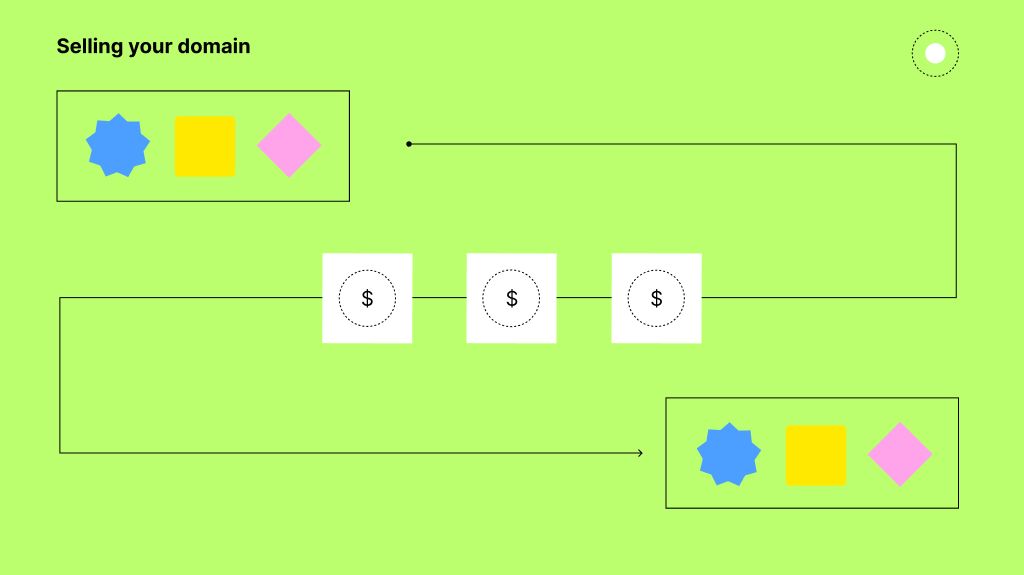Selecting the right domain name for your business is key to creating a solid digital foundation for your business. Why worry whether my domain name is good?
Advantages and Disadvantages of a Good Domain Name
- What are the benefits of a good domain name?
- Tips for choosing a domain name
- How can i safeguard my good domain name?
Your domain name is the front door for your visitors. It’s likely to create the first impression a user has about your business. It is also a significant branding opportunity for the company and can build brand recognition and awareness. A strong domain name can also help in your SEO performance. Including a keyword in your name will assist your website to be found by customers more readily. It helps to have a good domain name. But be aware there will always be pros and cons that you should consider when selecting that great name. 
What are the benefits of a good domain name?
There are many reasons why you need to find and use a great domain name for your business. So let’s list them:
- Builds credibility for your brand and differentiates your business from competitors
- Builds awareness and online visibility for your business
- Aligns your business with the digital world and demonstrates your contemporary approach to business
- Can improve your findability through the use of appropriate keywords
- Provides access to a broader and more geographically diverse target market
- Offers easy access to practical marketing campaign ideas such as competitions
- Provides an easy to use platform for customer reviews
Tips for choosing a domain name
Most businesses will use their brand name as their chosen domain name. There are some golden rules to have in mind when you are deciding on the domain name, or names, for your business: A) Keep it as short as practical Short domain names are easier to remember and communicate clearly on mobile devices. Shorter domain names also provide less opportunity for your customer to incorrectly spell your name when searching online. Try to keep your domain to less than 15 characters and avoid complex spellings. It should always be able to be spelled easily. It should not have negative connotations in your current or planned target markets and should ideally reflect your brand name. B) Avoid hyphens, numbers, symbols, slang and weird spellings. Domain name best practice suggests that anything that complicates your customer's life should be avoided. Combining numbers, letters or symbols in a domain name is confusing and difficult to enter on a mobile device. It is not a good idea to use a hyphen in a domain name, even if that is the only way to get your desired name. Hyphens only serve to increase the complexity of finding you online. Slang, too, should be avoided. It may be commonly used in your immediate vicinity but unknown in another target market or geographic location. C) Include SEO keywords in your domain name It will not always be possible but try to include a keyword in your domain name. A keyword in your domain tells search engines what your website is about. If you have a good user experience and quality content, you could rank higher in Google search results. Click here to learn about how a domain name can impact your SEO performance. D) Ensure you employ the correct extension or extensions Consider carefully the extension you want to use in your domain. Today there are an array of different extensions available. Some can help define you geographically. Some can help customers understand your business sector. Some can even be used to communicate whether you are a charitable or profit-driven business. Your domain extension is a crucial issue when considering the pros and cons of a good domain. It will be discussed further in this article. 
How can I safeguard my good domain name?
You have decided upon your perfect domain name. If it’s available, you will have found it here. Ensure that it reads well, is appropriate for your target market, and has considered the tips above. You now will likely have a good domain name for a website. If you have chosen a great name, you need to be aware that it is likely to be popular. It may well become more popular as your business success grows. Your competitors will be looking at every opportunity to leverage value from your domain name. Cybercriminals will be searching for ways to access your customers and their data. There are definitely some downsides to having a good domain name. Still, there are several measures you can take to minimise their impact. Firstly let’s consider domain name extensions. It makes sense to lock away some of the more obvious domain name extensions so other parties cannot purchase them. In Australia, for example, the new .au domain is gaining traction and would be a great place to start for your new domain. But there are other domain extensions, such as .com.au or .com, that you should consider to ensure you maintain the integrity of your site. If your domain name extension only reflects your Sydney location (ie .sydney), what happens when you want to take your brand national? For a more thorough understanding of how multiple domain names can help you protect your chosen domain, read here. Sometimes you need to employ more complicated domain names, particularly when using your name as a domain. Sometimes the spelling of an existing name can be tricky. Consider buying the most likely incorrect spellings, so you don’t miss those visitors. It’s all about ensuring that you are easy to find for your customers. It is essential to ask, “Is my domain name good?” and it is vital to recognise that a popular domain name deserves careful protection. Often this will mean employing multiple domains. Many businesses now recognise the strategic value and ease of owning more than one domain name extension using a domain manager. A domain name is central to your online presence, so it is worth thinking carefully about all the advantages and disadvantages of your domain name. If you need some extra help in addressing the pros and cons of a good domain name, talk to one of our domain registration experts.

.webp)


